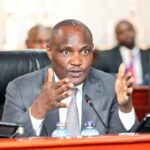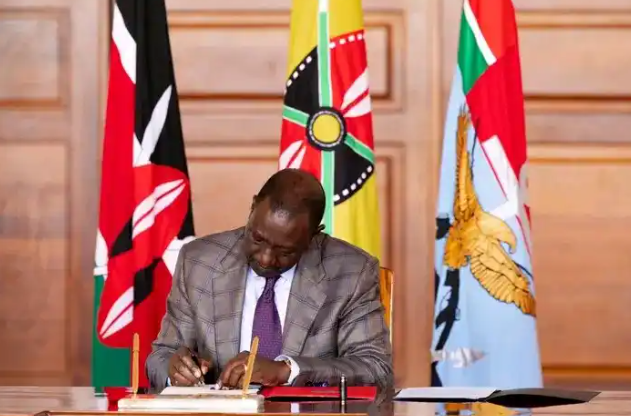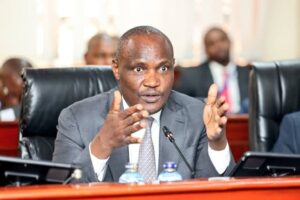Hundreds of Kenyans have vehemently opposed the government’s proposed financial bill.
The public outcry, which has swept across various regions of the country, has culminated in a significant directive from President William Ruto.
The President, in a swift response to the growing dissent, has instructed the National Treasury to immediately prepare supplementary estimates aimed at reducing government expenditure.
The protests, largely led by members of the Generation Z demographic, have been marked by significant clashes with police forces.
The unrest has led to tragic outcomes, including the deaths and injuries of several young protestors.
The calls for the rejection of the financial bill have been loud and clear, with demonstrators expressing deep concerns about the economic implications of the proposed legislation.
In a statement released this evening, President Ruto addressed the urgent need to realign the national budget in light of the anticipated shortfall in revenue due to the rejection of the financial bill. “I have instructed the National Treasury to immediately prepare supplementary estimates to reduce expenditure by the amount of revenue that was expected to be generated by the rejected Finance Bill,” President Ruto stated.
This directive aims to ensure that the government’s fiscal operations remain sustainable and that the economic stability of the nation is maintained despite the setback.
The decision to reduce expenditure reflects a pragmatic approach by the President to address the financial gap created by the rejected bill.
The supplementary estimates will be critical in recalibrating the budget to align with the revised revenue expectations.
This move is expected to prevent further economic strain and ensure that essential services and development projects continue without significant disruption.
The protests have highlighted the significant disconnect between the government’s financial strategies and the public’s economic realities.
The demonstrators, particularly from the youth demographic, have expressed their discontent with policies they believe exacerbate their financial burdens.
The loss of lives during the protests has added a tragic dimension to the unrest, underlining the urgent need for the government to engage with its citizens and address their concerns through constructive dialogue and responsive policymaking.
The deaths of the young protestors are a sobering reminder of the cost of political and economic discord.
The excessive use of force by police during the demonstrations has drawn widespread condemnation and calls for accountability.
The government’s response to the protests and the ensuing violence will be crucial in shaping the public’s trust and confidence in the administration.
As the country navigates this challenging period, the focus will be on how the government balances fiscal prudence with social justice.
The supplementary estimates prepared by the National Treasury will be a key factor in determining the success of this balance.
President Ruto’s directive is a clear signal of the administration’s willingness to adapt to the evolving economic landscape and address the public’s concerns head-on.
The coming weeks will be critical as the National Treasury finalizes the supplementary estimates and the government communicates its revised fiscal strategy.
The hope is that this approach will not only stabilize the economy but also pave the way for a more inclusive and responsive governance framework.





















Add Comment